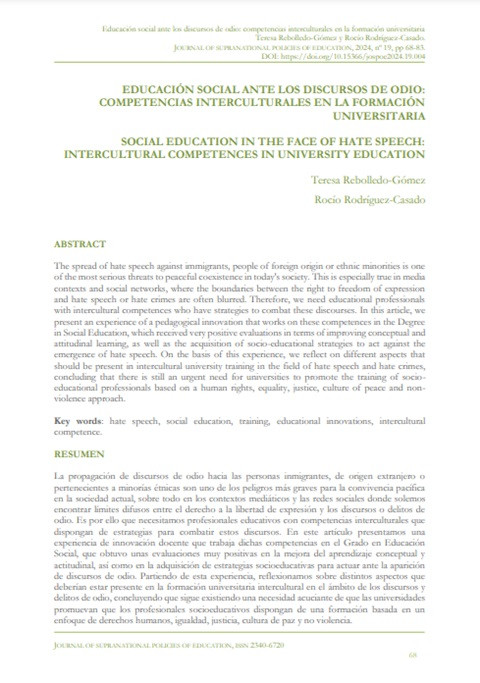
GCED Basic Search Form
Quick Search
Вы здесь
Ресурсы

The spread of hate speech against immigrants, people of foreign origin or ethnic minorities is one of the most serious threats to peaceful coexistence in today's society. This is especially true in media contexts and social networks, where the boundaries between the right to freedom of expression and hate speech or hate crimes are often blurred. Therefore, we need educational professionals with intercultural competences whohave strategies to combat these discourses. In this article, we present an experience of a pedagogical innovation that works on these competences in the Degree in Social Education, which received very positive evaluations in terms of improving conceptual and attitudinal learning, as well as the acquisition of socio-educational strategies to act against the emergence of hate speech. On the basis of this experience, we reflect on different aspects that should be present in intercultural university training in the field of hate speech and hate crimes, concluding that there is still an urgent need for universities to promote the training of socio-educational professionals based on a human rights, equality, justice, culture of peace and non-violence approach.
